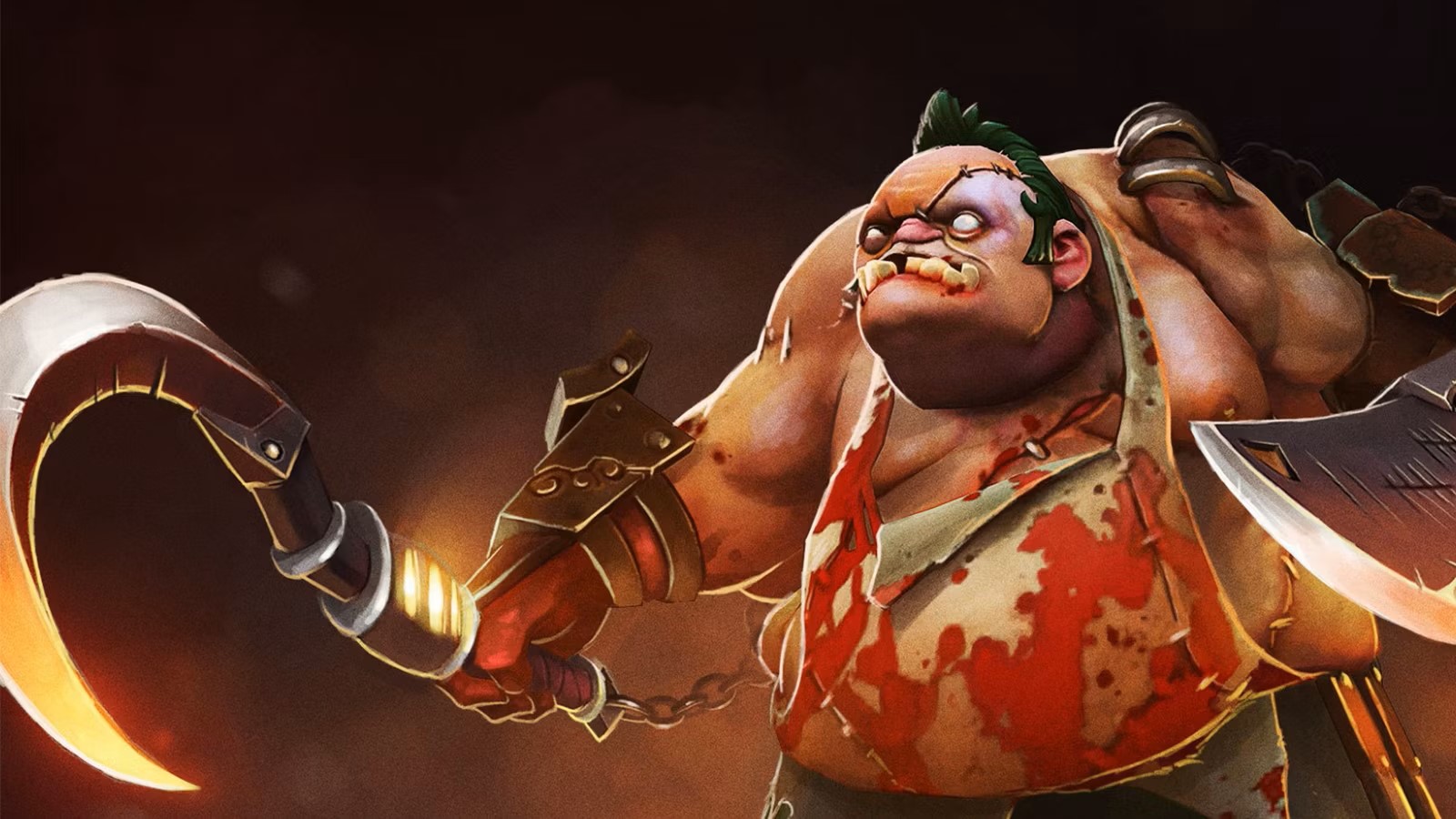
Dota 2's Pudge has become the first character in the MOBA's history to be played in more than a billion matches, making the portly butcher the game's most popular character by about 300 million matches.
As tracked by the website Dotabuff, Pudge had been played in 1,000,059,649 Dota 2 matches at the time of writing, with a Pick Rate of 33.03%. This puts him substantially ahead of the second-most popular character, Phantom Assassin, who has a measly 704,021,392 matches played by comparison, and a pick rate of just 23.25%.
Inspired by Diablo 1's Butcher boss, Pudge has been around as long as Dota has, and has been Dota 2's most popular character as far back as 2016. Pudge combines an active hooking ability that allows him to pull other players toward him, and passive traits that give him health and damage buffs with every enemy he kills. Players have been finding ingenious ways to utilise his abilities, such as the infamous "Fountain Hook" strategy made famous by the player Dendi at the International 2013.
Pudge's legacy also stretches beyond Dota 2, having inspired numerous similar characters in other multiplayer games. These include Overwatch's Roadhog, who combines an Unreal Tournament-style flak cannon with a Pudge-like hooking ability, as well as League of Legends' Blitzcrank.
Yet while Pudge is the most popular Dota 2 character, he doesn't have the highest overall win rate. The holder of that particular title is OmniKnight, with a win rate of 56.2%. Pudge's win rate, by comparison, falls toward the middle of the table at 50.96%. This could be because his popularity means he's played by less experienced players, but it's also true that Pudge was one of Dota 2's weaker characters in the game's early years.
Dota 2 has undergone some major changes in the last year. In June 2023, Valve announced it was moving away from the battle pass model, citing that most players "never buy" one anyway. Later in the year, Valve cracked down on third-party battle passes, and at Christmas played digital Krampus by luring thousands of cheating players into bans with fake Christmas presents.
Keep up to date with the most important stories and the best deals, as picked by the PC Gamer team.
Rick has been fascinated by PC gaming since he was seven years old, when he used to sneak into his dad's home office for covert sessions of Doom. He grew up on a diet of similarly unsuitable games, with favourites including Quake, Thief, Half-Life and Deus Ex. Between 2013 and 2022, Rick was games editor of Custom PC magazine and associated website bit-tech.net. But he's always kept one foot in freelance games journalism, writing for publications like Edge, Eurogamer, the Guardian and, naturally, PC Gamer. While he'll play anything that can be controlled with a keyboard and mouse, he has a particular passion for first-person shooters and immersive sims.

